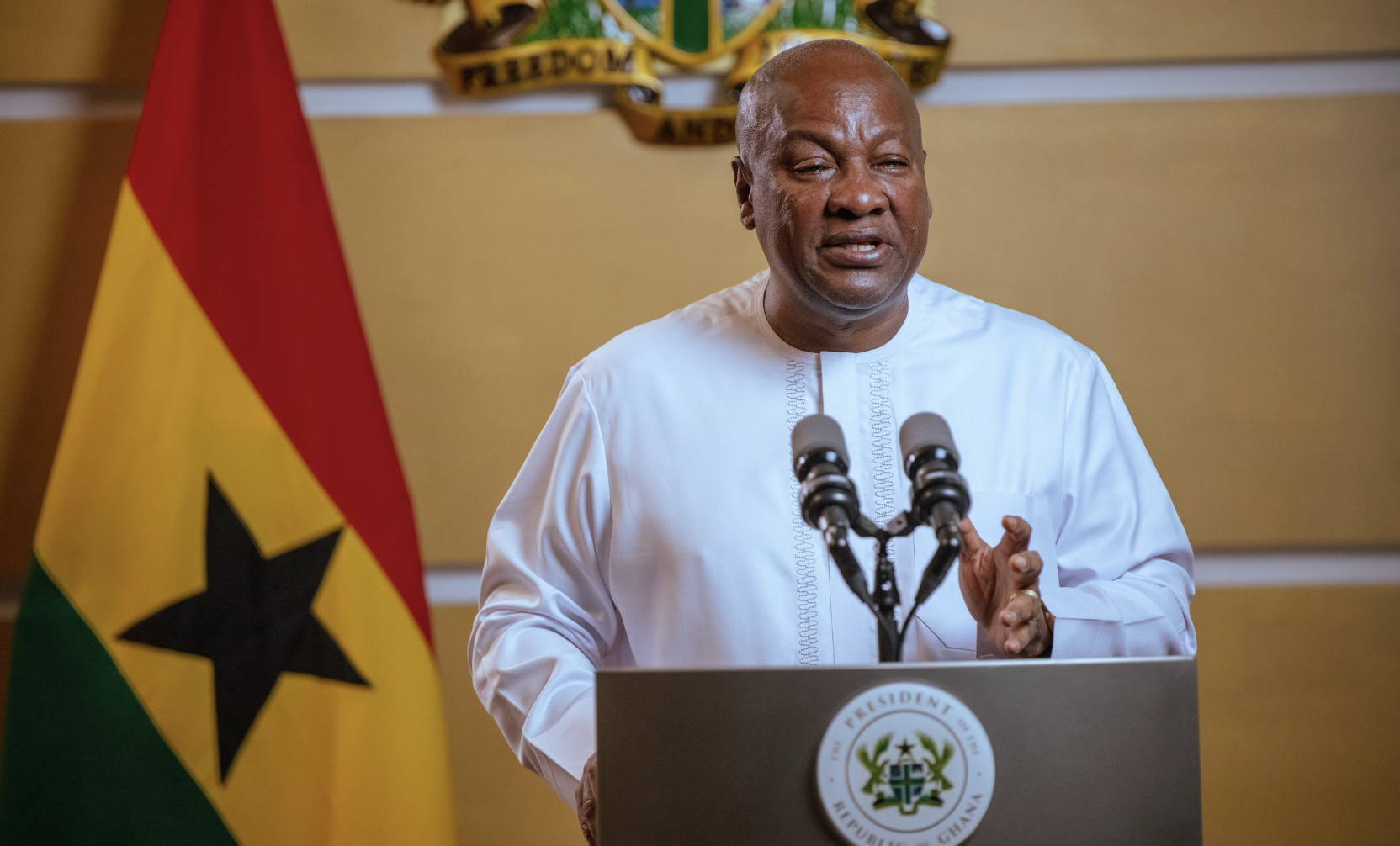President John Dramani Mahama says the government is set to roll out its flagship 24-Hour Economy Policy, with plans to activate the Volta Lake as a major transport corridor and decentralise the implementation of the policy.
Speaking at a multi-sectoral engagement at the Jubilee House, the President revealed that he has reviewed the final draft of the policy and says it is ready to deliver results. "I have reviewed it, and I'm confident we now have a coherent and actionable framework with which to deliver the results," President Mahama stated. "An effective catalyst for the 24-hour economy policy is a stable macroeconomic environment, which we are achieving through close coordination between the monetary and fiscal authorities." As part of the programme, the government plans to establish a 24-Hour Economy Secretariat to coordinate the rollout. "To guarantee institutional stability, I'm working with Parliament to establish the 24-hour economy secretariat as an independent authority, reporting directly to the President and backed by legislation," he said.
A major highlight of the policy is the development of the Volta Lake Economic Corridor, which will transform the lake into a national logistics route. "This corridor, centred on the Volta Lake and the Volta Basin, will become a national production zone and logistics hub," the President announced. "The plan envisions cultivating over two million hectares of arable lakeside land, revitalising the fishery sector on the lake, and creating a chain of industrial parks that produce goods for domestic and regional markets." To support this, the government will invest in new floating assets, lake ports, and long-term partnerships. "The lake will be activated as a transport highway, moving food, people, and goods more efficiently than our congested roads allow us to do currently," President Mahama explained.
According to the President, the 24-Hour Economy Policy is not just a vision but a structured plan aimed at job creation and inclusive growth. "The 24-hour economy program identifies priority value chains across all regions, and these include agro-processing, pharmaceuticals, textiles, light manufacturing, tourism, digital services, and the creative economy.

